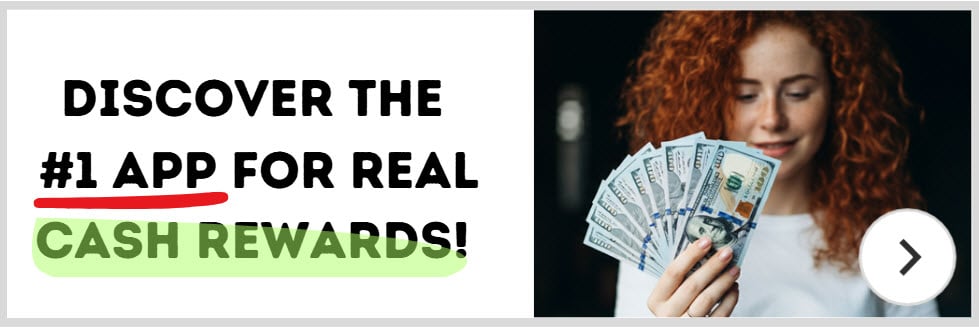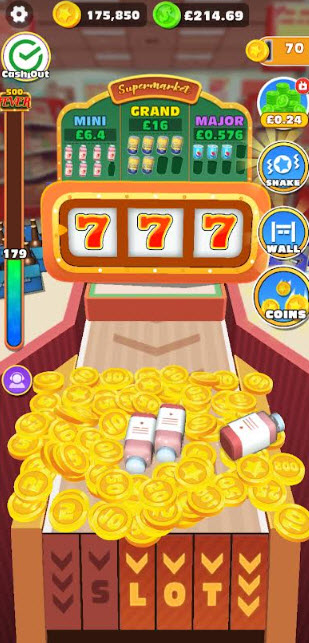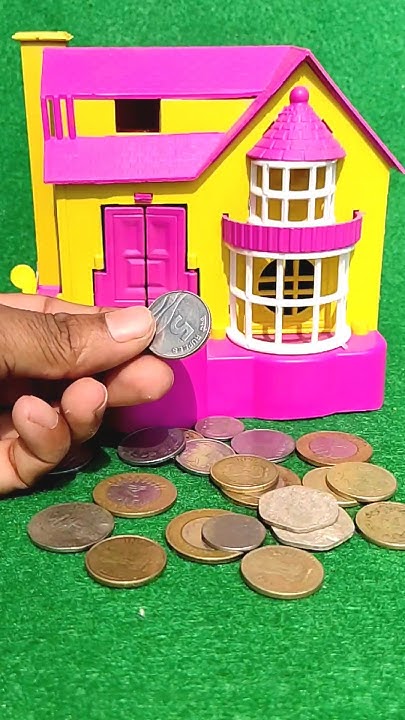Does Push The Coin Pay Real Money

The allure of earning real money while playing mobile games is a powerful draw, and "Push The Coin" is among the many applications promising such rewards. But does this popular arcade-style game truly deliver on its promise, or is it just another digital illusion?
This article aims to investigate the claims surrounding "Push The Coin," examining user experiences, payout mechanisms, and the overall legitimacy of its reward system. By exploring these aspects, we hope to provide clarity for potential users and shed light on the broader landscape of "get-paid-to-play" mobile games.
The Appeal and the Promise
"Push The Coin" simulates the classic arcade coin pusher, where players strategically drop coins onto a platform, aiming to push other coins and prizes off the edge. The game's appeal lies in its simplicity and the promise of converting virtual winnings into real-world currency.
Typically, users accumulate virtual coins or in-game currency, which they can then supposedly redeem for gift cards, cash payouts via platforms like PayPal, or other rewards. This promise of earning tangible rewards is what fuels the game's popularity and attracts a wide user base.
Investigating User Experiences
User reviews and online forums paint a mixed picture regarding the actual payout experience with "Push The Coin." While some users report receiving small payouts after significant gameplay, many others express frustration about the difficulty in reaching the minimum withdrawal threshold.
Several players have reported that the game makes it increasingly difficult to earn coins or virtual currency as they get closer to the payout threshold. This perceived manipulation has led some users to believe the game is designed to prevent them from actually cashing out.
It's also common to find complaints about intrusive advertisements and technical glitches that further hinder the earning process. These factors contribute to a negative user experience and raise concerns about the game's fairness.
Understanding the Payout Mechanism
Most games like "Push The Coin" operate on an advertising-driven revenue model. The developers generate income from the advertisements displayed within the game, and a small portion of this revenue is supposedly allocated for user payouts.
The challenge lies in the economics of this model. The amount of revenue generated per user through advertising is often significantly lower than the advertised payout amounts, creating a situation where payouts are either very small or extremely difficult to achieve.
Furthermore, the payout thresholds are often set artificially high, requiring users to invest a considerable amount of time and effort to even qualify for a withdrawal. This creates a significant barrier to entry for many players.
The Broader Landscape of "Get-Paid-To-Play" Games
"Push The Coin" is just one example of a growing number of mobile games that promise real-world rewards. This category of games has become increasingly popular, but it's important to approach them with caution.
Many of these games are designed to maximize revenue generation for the developers, often at the expense of the user experience. While some users may receive small payouts, the vast majority are unlikely to earn significant amounts of money.
It's also crucial to be aware of the potential risks associated with these games, such as data privacy concerns and the possibility of encountering scams. Always research the game developer and read user reviews before investing time and effort.
Expert Opinions and Regulatory Considerations
Consumer advocacy groups often warn against the unrealistic expectations associated with "get-paid-to-play" games. They emphasize the importance of reading the fine print and understanding the terms and conditions before engaging with these applications.
Furthermore, regulatory bodies are beginning to scrutinize the marketing practices of these games, particularly those that make misleading claims about earning potential. Ensuring transparency and consumer protection are key priorities.
Experts suggest that if a game promises easy money with minimal effort, it's likely too good to be true. A healthy dose of skepticism is always advised when dealing with such applications.
Conclusion: Is It Worth the Time?
While some users may have received small payouts from "Push The Coin," the overwhelming consensus suggests that the game is unlikely to provide a significant source of income. The time investment required to reach the minimum payout threshold, coupled with the potential for frustration and disappointment, may not be worth it for most players.
Instead of viewing such games as a reliable source of income, it's more realistic to consider them as a form of entertainment with a very small chance of earning a minimal reward. Treat it like a game, not a job.
Ultimately, potential users should weigh the potential benefits against the risks and make an informed decision based on their own expectations and priorities. Remember to prioritize responsible gaming and be wary of unrealistic promises.




![Does Push The Coin Pay Real Money Push The Coin – An Option To Make Money? [Review] - Apps paying me](https://appspaying.me/wp-content/uploads/2024/02/unnamed-34-1-576x1024.webp)

![Does Push The Coin Pay Real Money Push The Coin – An Option To Make Money? [Review] - Apps paying me](https://appspaying.me/wp-content/uploads/2024/02/unnamed-36-1-576x1024.webp)











